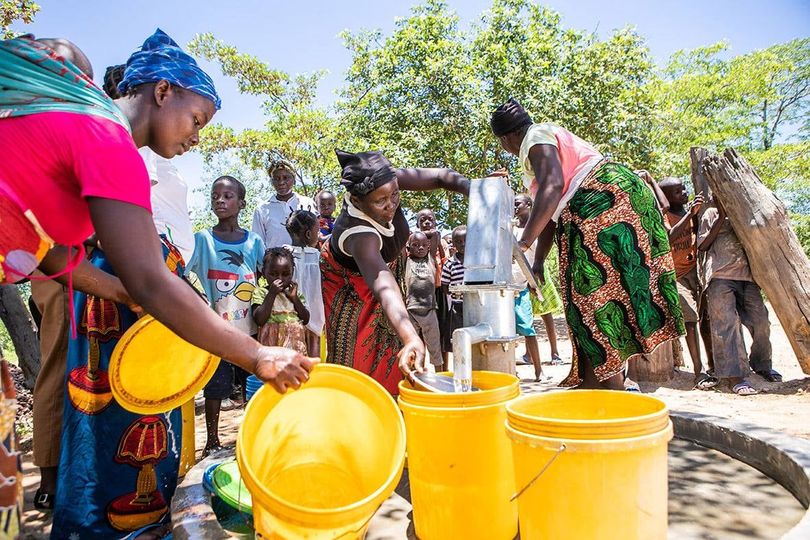
IMPROVED ACCESS TO CLEAN WATER KEY TO ENDING MALNUTRITION IN ZAMBIA
Lusaka (Monday, 22nd March 2021), This World Water Day celebrated on 22nd March 2021 under the theme “Valuing Water”, a broad coalition of actors in the nutrition sector is advocating for increased access to clean water in ending malnutrition in Zambia.
National Food and Nutrition Commission, UNICEF Zambia, the Deutsche Gesellschaft für Internationale Zusammenarbeit (GIZ), USAID Scaling Up Nutrition Technical Assistance, USAID Scaling Up Nutrition Learning & Evaluation, World Vision, WaterAid Zambia and CSO SUN Alliance note that water is key to fighting malnutrition in the country as it underpins other interventions aimed at addressing all forms of malnutrition.
The basic determinants of better health, such as access to safe Water, Sanitation and Hygiene (WASH) is still in a critical state in Zambia. Lack of access to water, sanitation and hygiene can affect a child’s nutritional status in at least three ways – diarrhoeal diseases, parasite infections and intestinal inflammation. Indirectly, it can also affect children where they walk long distances to fetch water, or in diverting parents’ time from child care.
Through Zambia’s multi-donor Scaling Up Nutrition (SUN) program, cooperating partners mentioned above and National Food and Nutrition Commission are supporting WASH activities for better hygiene promotion, sanitation, and access to clean, safe water in Zambia.
Despite a notable increase in the percentage of households with access to an improved source of drinking water from 65% in 2013-14 to 72% in 2018, (ZDHS) there is still a disparity in access to drinking water from an improved source between the urban and rural households. Urban households (92%) are more likely to have access to an improved source than rural households (58%).
Some of the reasons for this low access to clean and safe drinking water among rural populations in Zambia are high poverty levels-inability to pay for access and inequality. There is an urgent need to address the high poverty levels and inequality.
Research shows that improved access to clean water including sanitation and hygiene is associated with 30% decrease in diarrhea if implemented at scale to reach 99% coverage. Such decrease in diarrheal is associated with 2.4% decrease in stunting at 36 months (Bhutta, et al, 2008). Provision of clean water to schools and health facilities improves school attendance and sanitation and hygiene at these institutions.
In commemorating World Water Day, the broad coalition of actors recommends the following urgent actions in increasing access to clean water including sanitation and hygiene particularly in rural areas;
• Expedite measures to improve universal coverage of water access to all people, including hard-to-reach places.
• Prioritizing implementation of water, sanitation and hygiene interventions that will expand access to safe water, hygiene and sanitation facilities at household and community level and in key institutions such as schools and health care facilities;
• Zero tolerance to water pollution and wastage;
• Harness technology that promotes water security in light of climate change
• Promotion of optimal water, sanitation and hygiene related behaviours and
• Enabling policy environment and increased investment in water, sanitation and hygiene.
The coalition of actors is therefore appealing to policy makers and decision makers in public and private institutions, Civil Society Organizations and the media to prioritize improved access to clean water to end malnutrition in Zambia.
-END-
Issued by,
Barbara Hamoonga Ndhlovu
Communication & Advocacy Specialist
jhamoonga28@gmail.com



